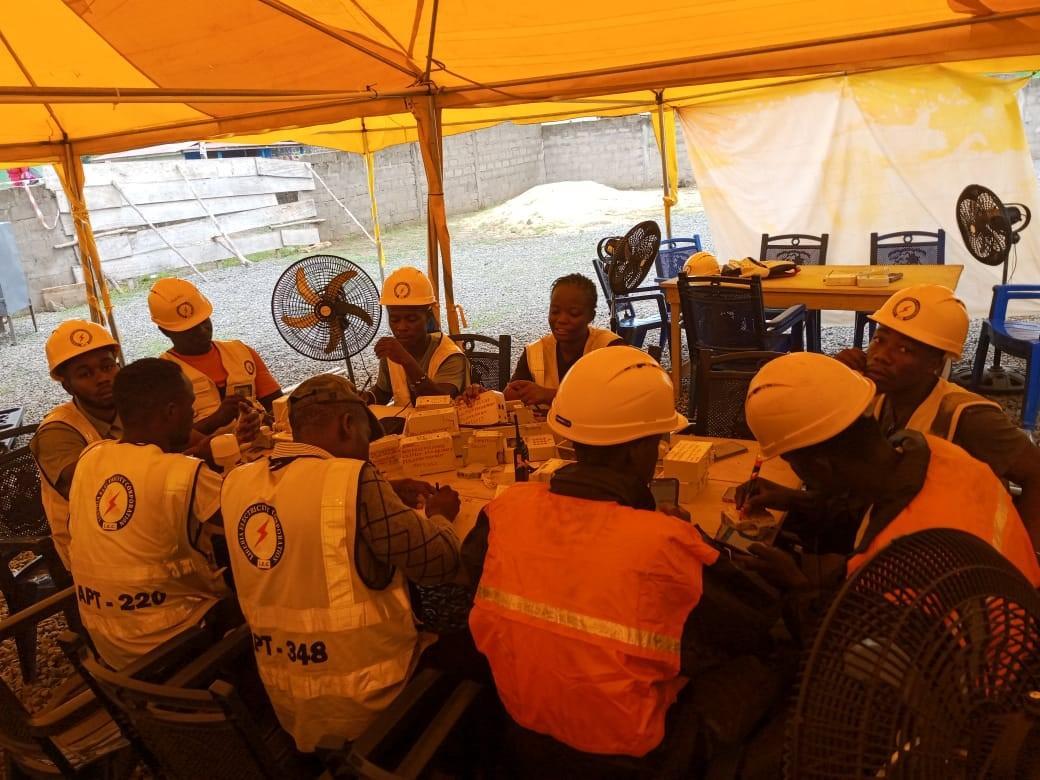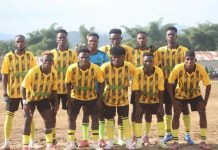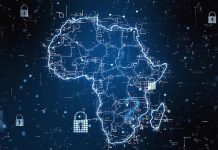
Rita Jlogbe Doue
Africa-Press – Liberia. MOUNT BARCLAY, Montserrado-Trokon Blewolo, a teacher in the Mount Barclay community, waits every evening for his neighbors to turn on their lights before marking his students’ papers. Blewolo said he has had no electricity since November when his line was disconnected by the Liberia Electricity Corporation (LEC) Power Theft Taskforce.
Blewolo paid a fine of $US50 and was issued receipt but he said he has yet to have his electricity restored. Having to rely on light from his neighbors has made it difficult for him to mark students’ work and prepare for classes the next day.
“Because the people put their lights on late in the evening, sometimes it takes me like two days to finish marking the papers,” said Blewolo. “I’m always left behind in preparing lessons for the kids.”
The LEC began a clampdown on illegal power connections across Montserrado county in November. It said 200 hundred teams comprising LEC officials, members of a new Anti-Power Theft Taskforce and the Liberia National Police conducted the raids, disconnecting nearly 3,000 homes caught with illegal connections. Adolphus Scott, LEC’s public relations officer, said since the formation of the taskforce, the agency has generated $US1.6 million in fines.
Those caught were asked to pay fines ranging from $US50 to $US1500 to get new meters. But many of those caught up in the clampdown said that’s when their real troubles began. While some were given meters, others were only issued receipts. In interviews, many with receipts said they have not received meters. At the same time, many of those who received meters said the meters are faulty. Some told NN/FPA that frustrated LEC workers have told them to post a photocopy of their fine receipt on display and continue with the illegal connection.
“I bought my meter in November but the meter not working,” said Marthaline Kermue, a resident of Barnersville. “They say they registered it, but when I went to buy credit to put in it, it was not going. Even I go back to LEC office, but they were not saying anything; I go back on direct.”
Kermue knows that her action is illegal but she said she has no choice. “If LEC was going to give me new meter or solve the meter problem, I was not going to do power theft.”
Musu Butler, a resident in New Jerusalem Community, said she was told by officials at the LEC power theft station to reconnect her illegal line until she is called for her meter.
“I went and paid for two meters in December,” said Butler. “Up till now, LEC has not called me yet. I made follow up two different times, and then they said, ‘You can put your wire on and photocopy the receipt and put it on the wall because now, meter is not in the country’.”
Power theft has been a major issue for the LEC. In 2021 U.S. Ambassador Michael McCarthy toured the LEC’s Bushrod Island facilities and said that commercial losses, including theft and unpaid bills, accounted for more than 50 percent of the electricity produced by LEC, seriously threatening the financial viability of the organization.
“Liberia Electricity Corporation lost $US220 million within the last five years as a result of well organized electricity theft cartel that benefits well connected businesses and government officials,” McCarthy said.
Earlier, the U.S. Embassy and Liberian Government officials celebrated the end of the Millennium Challenge Corporation Compact, a U.S.-funded, $257 million, 5-year rehabilitation of the Mount Coffee Hydropower Plant, the largest source of power in the country and Liberia’s “most expensive infrastructure”.
In a press conference McCarthy said he was impressed and discouraged by what he saw and heard. He said the LEC’s international management team had greatly improved operational readiness and facilities, but widespread power theft and unpaid bills had placed the LEC in a financial crisis from which it could not recover without immediate support from the Liberian Government.
The government formed the Anti Power Theft Taskforce. Mary Broh, the former Monrovia Mayor with a reputation for getting things done, was appointed to head it. On a recent visit to the Taskforce headquarters in Duport Paynesville Broh rejected the claim that there are no meters in the country. She claimed six teams work from Monday to Saturday to have those who paid their fines connections restored legally. She said LEC’s teams were “metering” about 600 customers per week.
LEC’s public relations officer Scott said the taskforce had issued more than 15,000 meters of which, 86 per cent were charging. More than $US1.6 million in power bills have been collected.
Broh denied claims that LEC officials were telling people to connect illegally. But she conceded that despite the Taskforce’s efforts, many people continue to steal power.
“People do refuse being metered because they continually enjoy power theft,” said Broh. “Nobody is being told to photocopy receipt and get on direct.”
David Brown, one of six supervisors from the Anti Power Theft Taskforce, conceded there are challenges. “My team carries 18 meters in the field every day. But we most times return with the meters because when we call the customers in order to have their meters installed, they will say they out of town.”
So serious is the issue that the Liberian penal law was amended in October 2019 to make power theft a second-degree felony. Madam Broh said since November the taskforce has forwarded more than 200 cases for prosecution.
But in communities across Monrovia the knock-on effects of power theft are plaguing communities. Aaron Massaquoi who runs a provision store in the Goshen Community on the Monrovia-Kakata Highway said he is not receiving full power because transformers are overloaded.
“It cause a lot of problems for us all the time because they got a lot of illegal connections that going on around here,” says Massaquoi. “Even the transformer blew off the last time back there, it cost us over four to five months before they [LEC] could replace it.”
These businesspeople accused LEC workers of a lot of the power theft. “Even like those guys that once worked on the LEC’s World Bank project, they are so many around and are doing those things. LEC should put a system in place that they will be able to monitor the system,” said Massaquoi. “LEC has the chance of making lot of money, if LEC just has a team that can even monitor three to four communities, just one vehicle can do it, but the monitoring system is not there.”
Broh conceded that some illegal connections are carried out by current and former LEC workers. She said one of those involved is currently in prison and promised similar punishment awaits future perpetrators.
Broh insisted the Taskforce’s work is so important it should be continued after its mandate ends by being incorporated into the LEC.
“Dissolving the Anti-Power Theft Taskforce will undermine the gains we are making now,” said Broh. “Put a system in place where you will be able to monitor and discover non vendors without climbing poles.”
For More News And Analysis About Liberia Follow Africa-Press





